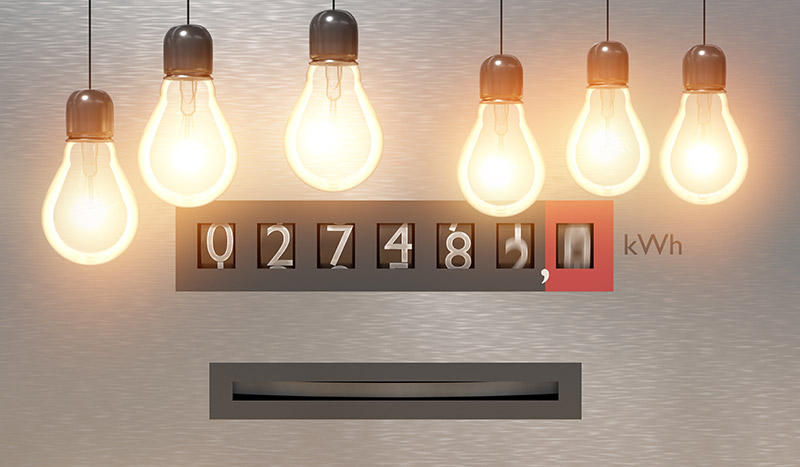Ofgem Have Raised the Price Cap - Here's How to Keep Your Bills Down

Industry watchdog Ofgem has recently announced that they will be raising the maximum amount that energy companies are allowed to charge customers on standard variable tariffs.
Ofgem blamed rising costs of wholesale energy for the hike, and did their best to assure customers that they still wouldn’t be paying over the odds.
"We can assure these customers that they remain protected from being overcharged for their energy and that these increases are only due to actual rises in energy costs, rather than excess charges from supplier profiteering," said Dermot Nolan, chief executive of Ofgem.
There are around 11 million households who are on default or standard variable tariffs,
each of which may now face an increase on their annual energy bill of £117. A further four million customers are on prepayment meters, with the new cap leaving them £106 worse off than before.
Luckily, for those affected by the hike, or just for those who just want to save money on their energy generally, we’ve put together a few tips to put your own cap on your monthly bill.
Turn of your appliances.
A simple rule but one that people often forget, simply because something is on standby doesn’t mean it’s not using energy and that little red light could be burning a hole in your pocket. It’s always worth doing a quick check before you go to bed to make sure everything is turned off and to ensure you’re not wasting money into the night.
Insulate your house
A properly insulated house needs far less energy to heat effectively, meaning that you can turn your heat down and still stay nice and toasty. The upfront cost may seem like a lot you will see savings over the long term so if you can afford it, its worth forking out. In some cases your energy provider will contribute or even cover the cost of insulation, so it’s always worth asking them before you pay for it yourself.
Double Glazing
A large proportion of energy lost in your house will be lost through your windows so getting them double glazed is another sure fire way to minimise the amount of energy you need to keep your house warm.
Think about water
You may not think it, but heating water takes a lot of energy and being smarter about it can save you’re a surprising amount of money. A good way to start is by not filling up your kettle right to the top if just boiling enough for one cup of tea, or making sure the hob you are using matches the size of the saucepan to avoid wasting heat. Only run your washing machine or dishwasher when it’s full to maximise efficiency. Washing your clothes at a lower temperature will also help bring that monthly bill down and save you shrinking your garments at the same time.
Check your fridge and Freezer
Your fridge/freezer is one of the biggest energy guzzlers in your house, and if it’s using more energy than necessary then this can cost you a fair amount. While it’s obviously important to make sure the door is closed at all times for a variety of reasons, checking the seals are airtight is another way to make sure you aren’t haemorrhaging energy.
If your freezer starts building up ice then it is going to need more energy to keep it at the optimum temperature. It’s also a good idea to keep your fridge/freezer as far away from heat sources as possible to make sure it doesn’t have to expend too much energy to achieve its optimum temperature.
Switch to energy efficient lightbulbs.
According to the Energy Saving Trust, replacing a traditional lightbulb with a more efficient alternative will save you around £3 per year per lightbulb. This might not sound like a lot, but will add up across a household.
Limit your heating.
Everyone likes a toasty house but having the heat blaring when no one’s around is a great way to throw money out the window. Setting your heating so it only comes on twice a day for a burst of a few hours once in the morning once in the evening you can make sure your house is warm when you need and not roasting when you don’t.
Wear a jumper
Even when your heating is on there’s no need to try and replicate a heatwave within your own home. Wearing some warm clothes and keep your heating on a medium setting is a good compromise between comfort and frugality.
Install solar panels.
This one will be a fair cost up front but will also reap you the most rewards in the long term. A single solar panel will cost you somewhere in the region of between £400-£500 to buy and install but it is calculated by the energy saving trust that you can save between £100 and £200 per year making them a long term investment.
Swap Provider
If you want to make an immediate saving on your energy then great way to do it is to swap your energy provider. Most people who have been stuck on a default tariff for a long time will find that they aren’t getting the best deal from their provider. If you want to see what options are available to you then check out our handy comparison tool to see how much you can save.
Read on our blog

With the government poised to implement tough new measures to...

Budget broadband provider TalkTalk has been notifying customers via email...

A year-long investigation by charity Citizens Advice has revealed a...

Education Secretary Nadhim Zahawi has announced a new commitment to...
